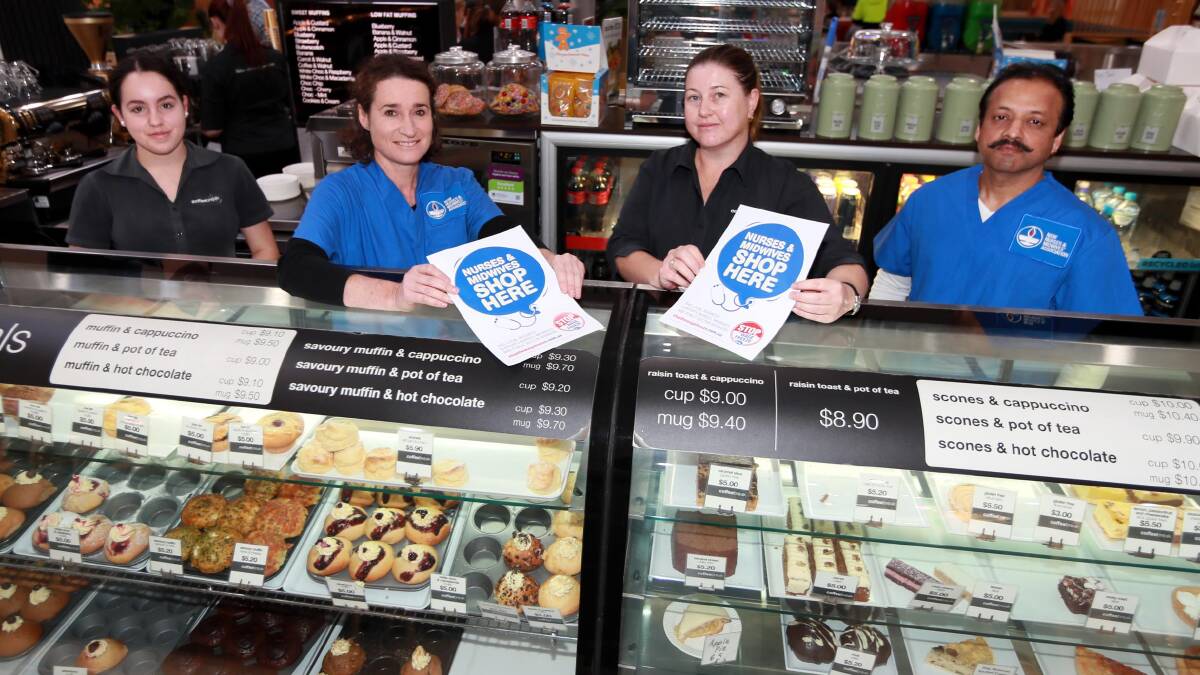
Nurses and midwives can expect their annual salary increase to be delayed "at the very least' as they continue their fight against a proposed wage freeze.
Subscribe now for unlimited access.
$0/
(min cost $0)
or signup to continue reading
Wagga nurses are calling on the community for support as their union clashes with the NSW government in industrial court over the premier's proposal to freeze public service wages for a year.
NSW Nurses and Midwives Association Wagga branch secretary Sylvia Moon called the policy "a slap in the face".
"We've been on the frontline for COVID-19, keeping our patients safe and just to say, 'We won't give you any money' is pretty ordinary," she said.
Ms Moon and NSWNMA Wagga branch delegate Amit Gupta were in the Wagga Marketplace yesterday handing out "Nurses and Midwives Shop Here" posters to supportive local businesses.
"We won't be able to spend as much in our community. And with the bushfires and COVID-19 I think it's necessary to stimulate that economy," Ms Moon said.
"And giving us a pay freeze will not help at all. It doesn't make any economic sense to do so."
The NSWNMA joined other major public sector unions in this week's Industrial Relations Commission stoush, arguing that refusing public servants their stipulated 2.5 per cent wage increase was bad economic policy.
To support their argument, the nurses' union commissioned market researcher YouGov to survey 2700 members, 85 per cent of whom were female.
The survey found nurses and midwives hit with a wage freeze would, on average, curb their monthly expenses by $350 and lose out on $160 each month in income.
NSWNMA general secretary Brett Holmes called the Berejiklian government's proposal "a disaster for rural NSW and regional cities".
"Nurses and midwives right across NSW and particularly in areas like Wagga have seen increasing workloads and they deserve a pay increase," Mr Holmes said.
"We would like the commission to listen to the very strong economic evidence that we are putting forward, that a wage freeze will have a very adverse impact upon expenditure by our members and other public servants."
Australia has been tipped into recession by the coronavirus pandemic and the Berejiklian government estimates its wage freeze would save $3 billion which it has slated for building projects.
However, Mr Holmes said regional communities wouldn't necessarily reap any economic rewards from big infrastructure spending.
He said it could take the commission "some time to go through the evidence" and that further hearing dates were set for late July.
Nurses and midwives had been expecting to see their salaries increase from July 1.

